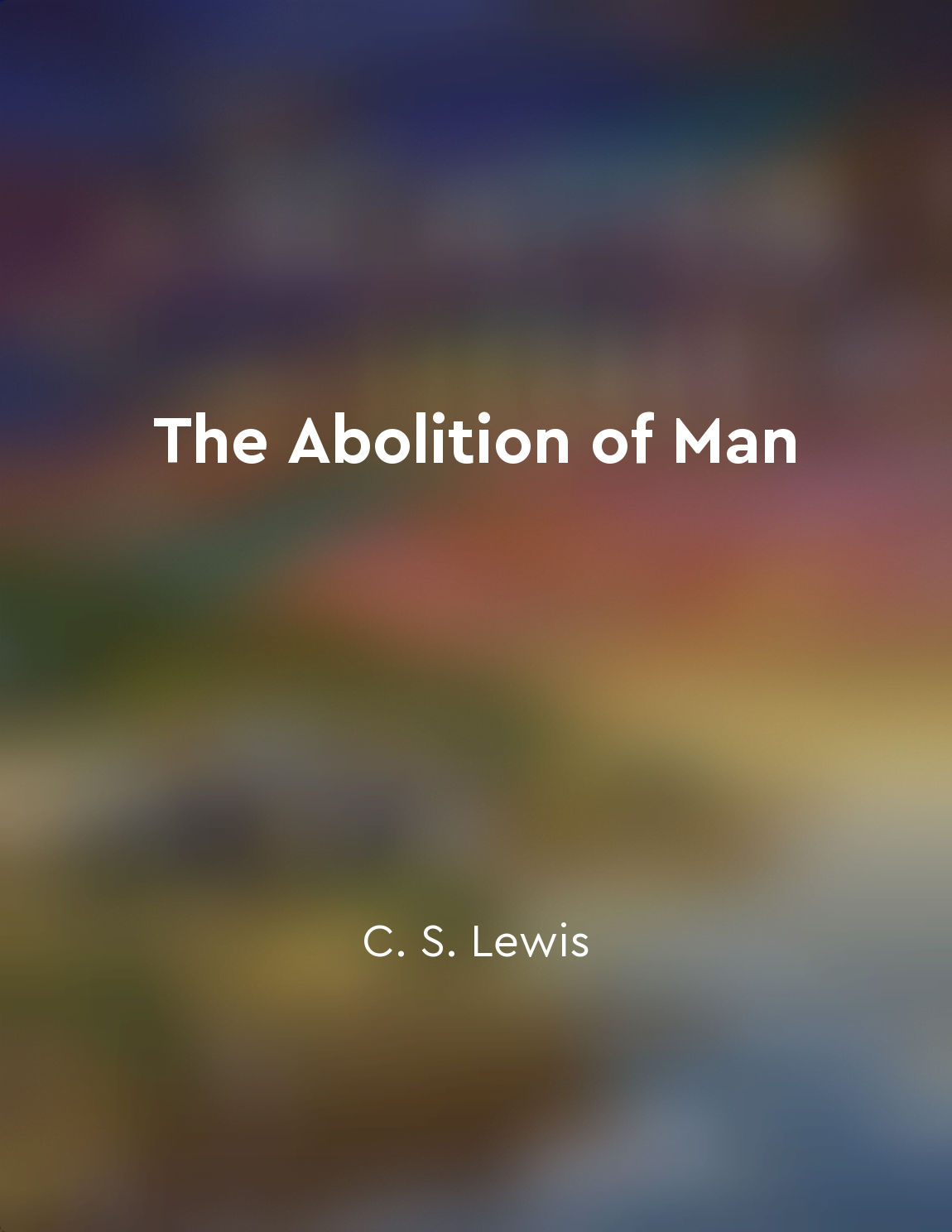The implications of dismissing moral values as mere preferences from "summary" of The Abolition of Man by C. S. Lewis
In the modern world, there is a dangerous trend to dismiss moral values as nothing more than personal preferences. This view suggests that ethical principles are merely subjective whims, lacking any objective truth or universal significance. However, this dismissal of moral values as mere preferences has profound implications that reach far beyond individual beliefs or feelings. When moral values are reduced to mere preferences, they lose their ability to guide human behavior and shape society. Without a firm foundation in objective truth, morality becomes nothing more than a matter of personal taste, akin to choosing one's favorite flavor of ice cream. In such a world, there is no basis for condemning actions such as murder, theft, or deception as inherently wrong, as they are simply a matter of personal preference. Furthermore, by dismissing moral values as mere preferences, we undermine the very essence of what it means to be human. As C. S. Lewis argues, moral values are not arbitrary choices but are rooted in the objective reality of the natural order. They serve as a moral compass that directs us towards the fulfillment of our true human nature, guiding us in our interactions with others and shaping our character. Moreover, when moral values are reduced to mere preferences, we open the door to the tyranny of those in power. Without a shared understanding of objective moral truths, there is no basis for challenging the actions of those who seek to impose their will on others. In a world where morality is subjective, might makes right, and the weak are left defenseless against the whims of the powerful.- The implications of dismissing moral values as mere preferences are far-reaching and profound. By reducing ethics to personal whims, we undermine the very foundation of society, diminish our humanity, and leave ourselves vulnerable to the tyranny of those in power. It is essential that we recognize the importance of moral values as objective truths that guide our actions and shape our interactions with others.
Similar Posts
Human behavior is a complex interplay of instincts and rational thought
In the realm of human behavior, we are often faced with a seemingly endless array of actions, reactions, and decisions that sha...
Autonomy is essential for moral agency
In order to understand the concept that autonomy is essential for moral agency, we must first grasp the significance of autonom...

The pursuit of truth requires continual questioning and critical thinking
In the quest for truth, we must be willing to question everything around us. This means not simply accepting things at face val...

The authority of religious institutions should be challenged and questioned
It is essential for individuals to question and challenge the authority of religious institutions. Blindly following these inst...
He discusses the potential dangers of tyranny of the majority
In a democratic society, where the majority holds the power, there exists a potential threat known as the tyranny of the majori...
Religion is built upon faith and emotional commitments
Religion, according to Hume, is not grounded in reason or evidence, but rather in faith and emotional commitments. He argues th...
We are prone to biases and prejudices
Our minds are complex and intricate, capable of incredible feats of reasoning and understanding. However, they are also suscept...
Democratic equality
Democratic equality refers to the principle that all citizens have an equal right to participate in the political process and h...

Information revolutions transform human societies
Information revolutions have been instrumental in shaping the course of human history. These revolutions have the power to tran...
The laws of nature reflect an intelligent design
The intricate laws of nature that govern the universe exhibit a level of complexity and precision that suggest a thoughtful and...


